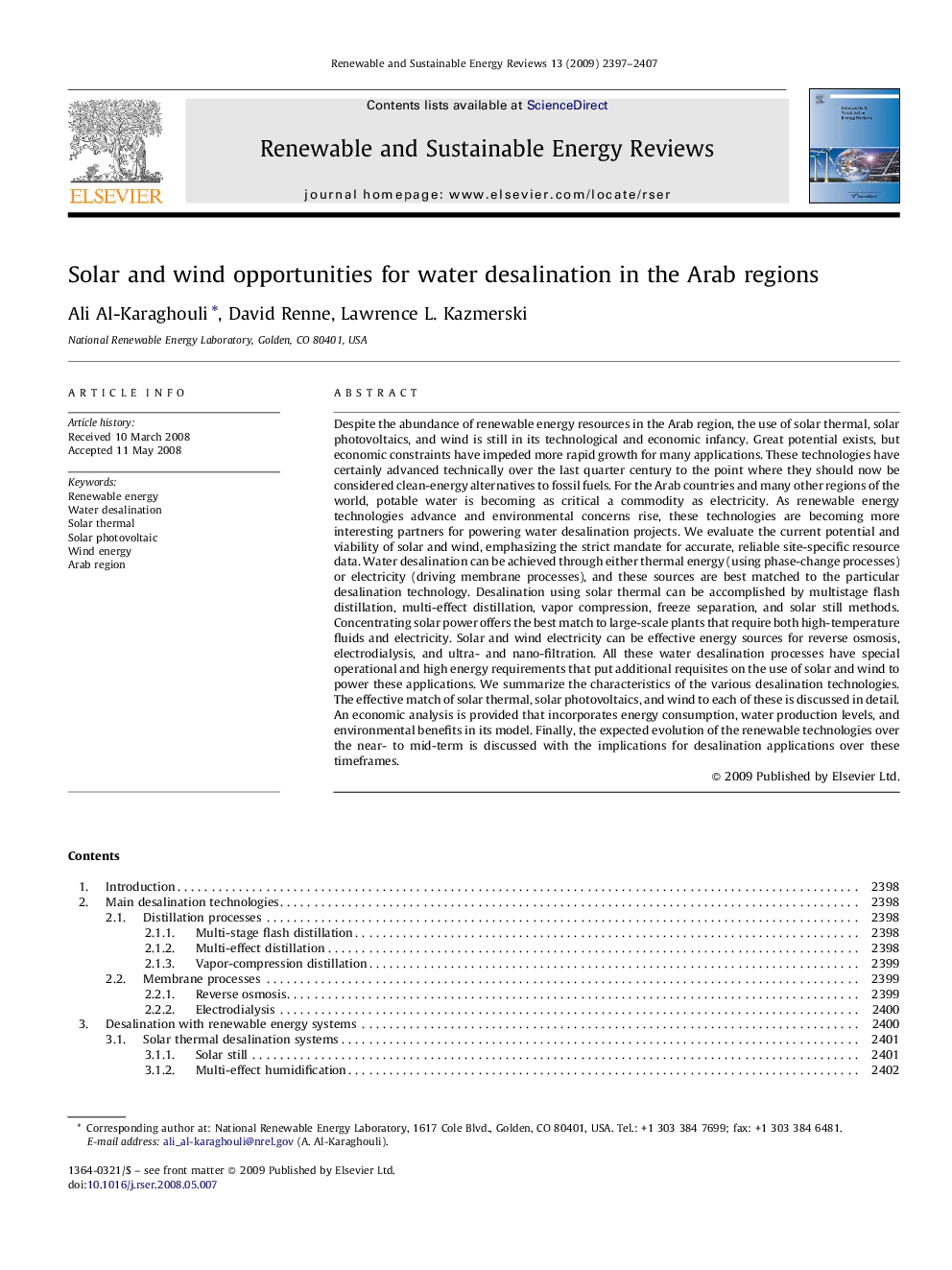| کد مقاله | کد نشریه | سال انتشار | مقاله انگلیسی | نسخه تمام متن |
|---|---|---|---|---|
| 1752051 | 1018431 | 2009 | 11 صفحه PDF | دانلود رایگان |

Despite the abundance of renewable energy resources in the Arab region, the use of solar thermal, solar photovoltaics, and wind is still in its technological and economic infancy. Great potential exists, but economic constraints have impeded more rapid growth for many applications. These technologies have certainly advanced technically over the last quarter century to the point where they should now be considered clean-energy alternatives to fossil fuels. For the Arab countries and many other regions of the world, potable water is becoming as critical a commodity as electricity. As renewable energy technologies advance and environmental concerns rise, these technologies are becoming more interesting partners for powering water desalination projects. We evaluate the current potential and viability of solar and wind, emphasizing the strict mandate for accurate, reliable site-specific resource data. Water desalination can be achieved through either thermal energy (using phase-change processes) or electricity (driving membrane processes), and these sources are best matched to the particular desalination technology. Desalination using solar thermal can be accomplished by multistage flash distillation, multi-effect distillation, vapor compression, freeze separation, and solar still methods. Concentrating solar power offers the best match to large-scale plants that require both high-temperature fluids and electricity. Solar and wind electricity can be effective energy sources for reverse osmosis, electrodialysis, and ultra- and nano-filtration. All these water desalination processes have special operational and high energy requirements that put additional requisites on the use of solar and wind to power these applications. We summarize the characteristics of the various desalination technologies. The effective match of solar thermal, solar photovoltaics, and wind to each of these is discussed in detail. An economic analysis is provided that incorporates energy consumption, water production levels, and environmental benefits in its model. Finally, the expected evolution of the renewable technologies over the near- to mid-term is discussed with the implications for desalination applications over these timeframes.
Journal: Renewable and Sustainable Energy Reviews - Volume 13, Issue 9, December 2009, Pages 2397–2407